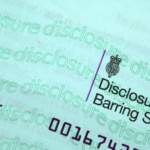How Often Should DBS Checks Be Renewed in Schools? Essential Guidance for Safeguarding Pupils
Ensuring the safety of children and vulnerable groups in educational settings is crucial. As part of safeguarding measures, schools and colleges often carry out Disclosure and Barring Service (DBS) checks before hiring staff and accepting volunteers. A DBS check helps determine if someone has a criminal history that would make them unsuitable to work with children. It’s essential to understand when these checks should be renewed to maintain a secure environment for pupils.

The requirements for renewing DBS checks can vary, as there isn’t a set legal requirement for how often they should be renewed. However, best practice, as advised by regulatory bodies like Ofsted, suggests that educational institutions renew DBS checks periodically. Many schools, colleges, and nurseries opt to renew these checks every three to five years. This proactive approach demonstrates their commitment to safeguarding students and staff.
While the decision ultimately rests with your school’s governing body, staying updated with government and Ofsted requirements is vital to ensure you consistently meet expected standards. Implementing a clear policy on DBS check renewals can help protect not only the children but also the integrity of the education sector and everyone who works within it.
Understanding DBS Checks in Schools
In schools across the UK, Disclosure and Barring Service (DBS) checks are central to safeguarding students. These checks help prevent unsuitable individuals from working with children and provide reassurance for both employers and parents.
Types of DBS Checks
The DBS offers several levels of checks, each providing a different depth of scrutiny. The two main types encountered in the education sector are:
- Standard DBS Check: These reveal spent and unspent convictions, cautions, reprimands, and final warnings.
- Enhanced DBS Check: This is a more detailed check, including the same information as the Standard check, plus any other information held by the police that’s deemed relevant to the role. If the position involves working in regulated activity with children, an enhanced check with a barred list check is legally required. This barred list check ensures that the individual is not prohibited from working with these groups.
Legal Requirements for DBS Checks
Legally, anyone working in unsupervised roles with children or in certain specified positions must have an enhanced DBS check. Positions that involve regular contact with children or take place in a school—such as teachers, teaching assistants, and caretakers—usually require this level of check. It is the employer’s legal responsibility to ensure a potential employee is not on the barred list before they begin working in regulated activity.
Roles and Activities Requiring DBS Checks
For enhanced DBS checks, the law outlines specific roles in schools that require them:
- Teachers and teaching assistants
- School nurses and medical staff
- Childcare providers
- School governors involved in the management or governance of the school
Activities requiring this level of check include:
- Teaching, training, or supervising children
- Providing advice or guidance to children on their physical, emotional, or educational wellbeing
- Driving a vehicle solely for children
- Regular volunteers, for instance, may also need an enhanced check, especially if their work qualifies as regulated activity. DBS checks are a cornerstone of the safeguarding framework, ensuring the safety and protection of children in education.
DBS Renewal Process in the Education Sector
Consistent safeguarding measures are critical in education, and DBS checks are vital in these procedures. Awareness of renewal timeframes, the benefits of the Update Service, and managing potential lapses in DBS checks is essential for maintaining child safety and complying with regulations.
- Renewal Timeframes – DBS checks don’t have an official expiry date. Instead, they reflect the individual’s criminal record status at the time of the check. Many educational institutions opt for a renewal policy—commonly every three to five years—to reflect any changes in an individual’s criminal status. Renewal requires following the same steps as during the initial recruitment process, using an online application service to submit a new DBS check.
- Managing Lapses in DBS Checks – A lapse occurs when someone’s DBS certificate has not been renewed or updated according to institutional policy or within the suggested timeframe, posing potential risks. Schools should have clear policies to manage lapses, ensuring no one falls through the cracks. If a lapse occurs, take immediate steps to rectify the situation, such as applying for a new DBS check or checking the certificate via the Update Service (if the individual is subscribed). Regular use of the Update Service can significantly reduce the risk of lapses.
Compliance and Best Practices for Schools
When managing DBS checks, schools must adhere to legal requirements while also adopting best practices that safeguard the wellbeing of their communities.
- Regulatory Compliance
- UK schools are required to conduct criminal record checks for all new staff as part of recruitment. DBS checks act as a snapshot in time, and while they don’t officially expire, guidelines suggest instances when a new check may be necessary:
- If there’s a change in the employee’s role
- If the individual has a break in service for a certain period
- As part of regular policy reviews recommended by Ofsted
- Best Practice Recommendations for Schools
Maintaining high standards for DBS checks demonstrates a safety-conscious approach. Schools should:
- Regularly review safeguarding policies and incorporate DBS checks in line with Ofsted requirements.
- Maintain a record-keeping system to log when checks were conducted to guide decisions on renewals.
- Stay updated and vigilant to meet statutory requirements.
Managing DBS Checks for Different School Staff
- Permanent and Supply Staff – DBS checks for permanent staff may be redone according to school policy or if concerns arise. For supply staff, ensure their DBS checks are regularly verified or sourced through agencies that maintain rigorous standards.
- Volunteer and Part-Time Staff – Ensure DBS checks for volunteers and part-time staff involved in regulated activities are up to date. For intermittent staff, apply the same diligence as for full-time employees.
- Governors and Club Leaders – School governors require a DBS check, even if not engaging directly with children. Club leaders working closely with pupils require enhanced DBS checks. Keep a centralised record of check dates and renewal schedules.
Addressing Concerns About DBS Checks
- Break in Service – Staff returning after a break in service (usually over three months) typically require a new DBS check.
- Portability of DBS Certificates – Portability through the DBS Update Service allows certificates to remain up to date. However, schools often prefer fresh checks for their own institution.


